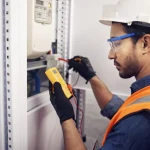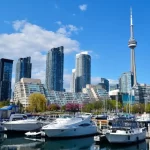Building inspections play a critical role in maintaining the safety, functionality, and sustainability of both commercial and residential properties. As the focus on sustainability in public housing grows, the importance of thorough and effective building inspections becomes even more pronounced. This article explores how building inspections address sustainability issues in public housing, with a focus on the contributions of NSPIRE Consulting.

Content
The Importance of Building Inspections
Building inspections are essential for identifying potential problems in structures before they become major issues. These inspections ensure that buildings comply with local codes and regulations, providing a safe and healthy environment for occupants. For public housing, this is particularly important as it affects the wellbeing of numerous families and individuals.
Sustainability in Public Housing
Sustainability in public housing refers to practices that reduce environmental impact, increase energy efficiency, and promote the long-term viability of housing projects. This includes using eco-friendly materials, implementing energy-saving technologies, and ensuring buildings are designed for maximum efficiency. Regular inspections help identify areas where sustainability can be improved, such as outdated HVAC systems or insufficient insulation.
Role of NSPIRE Consulting
NSPIRE Consulting specializes in providing building inspection services with a strong focus on sustainability. Their expertise ensures that inspections not only check for basic compliance but also assess the environmental impact of the building. By integrating sustainability into their inspection process, NSPIRE Consulting helps public housing authorities identify and implement eco-friendly solutions.
Common Issues Found in Inspections
During inspections, several common issues related to sustainability are often discovered:
- Energy Inefficiencies: Old or poorly maintained systems can lead to high energy consumption.
- Water Leaks: Leaks not only waste water but can also cause significant damage over time.
- Poor Insulation: Inadequate insulation can result in higher heating and cooling costs, reducing energy efficiency.
- Use of Non-Eco-Friendly Materials: Identifying and replacing materials that are harmful to the environment.
Addressing Sustainability Issues
Addressing these issues requires a strategic approach:
- Upgrading Systems: Replacing old HVAC systems with energy-efficient models can significantly reduce energy usage.
- Fixing Leaks: Regular maintenance and timely repair of leaks prevent water waste and structural damage.
- Improving Insulation: Adding or upgrading insulation helps maintain temperature and reduces energy costs.
- Using Sustainable Materials: Opting for materials that are eco-friendly and sustainable ensures a lower environmental impact.
The Impact of Sustainable Inspections
Implementing sustainability-focused inspections has numerous benefits:
- Cost Savings: Reduced energy and water usage translate to lower utility bills.
- Environmental Benefits: Decreased consumption of resources and lower emissions contribute to environmental conservation.
- Enhanced Quality of Life: Better insulation and efficient systems create a more comfortable living environment.
- Long-Term Viability: Sustainable practices ensure that public housing remains viable and livable for future generations.
Conclusion
Building inspections are crucial for maintaining the safety and sustainability of public housing. By identifying and addressing sustainability issues, inspections contribute to the overall well-being of residents and the environment. NSPIRE Consulting’s focus on sustainability in their inspection process highlights the importance of integrating eco-friendly practices into building maintenance and management. As public housing continues to evolve, the role of sustainability-focused inspections will only grow in significance, ensuring a better future for all.

With a passion for matching clients with their dream homes, Mary’s experience and knowledge of the real estate market make her a trusted advisor. She’s your go-to expert for buying or selling properties in the heart of the city.






